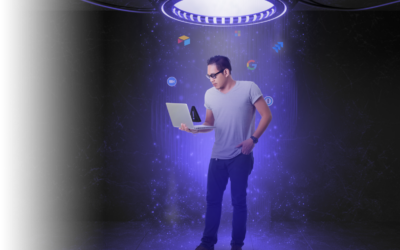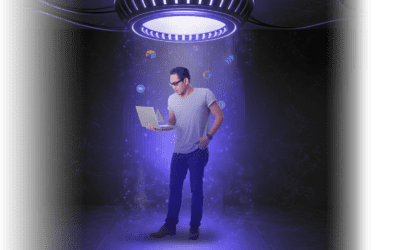In a future where artificial intelligence (AI) plays a more central role, the implications can be both exciting and scary. AI is already part of people’s everyday life, but in the coming years, it’s set to become even more prevalent. This growth could present new challenges and opportunities for businesses.
WHAT IS ARTIFICIAL INTELLIGENCE (AI)?
AI is an old field of computer science research and there are many different definitions of what exactly AI is and isn’t. The most commonly cited definition is that AI is a computer program that can successfully perform tasks that require human intelligence like reasoning, planning, discovering patterns, understanding language, and making decisions. Another way of defining AI is to look at the goal of the field: To build computer systems that can develop skills that were once unique to humans.
HOW WILL AI CHANGE THE WORKPLACE?
Machines are already automating many tasks that used to be performed by humans and as AI continues to advance, it will have an even greater impact. AI frees people up to do higher-value tasks. For example, AI can perform certain clerical tasks, allowing employees to focus on more strategic work.
Also, as AI assistants become more sophisticated, they could take on many administrative tasks such as scheduling meetings or organizing projects. Technologists are continuing to create faster chips for deep learning, which helps businesses forecast the amount of work that they will need to carry out each day. AI may even be able to do creative and intuitive work in the near future.
THE JOBS DEBATE
The debate about how AI will affect the future of work has been going on for decades. Many people have predicted that AI will displace humans from their jobs and lead to mass unemployment. However, this hasn’t happened yet, and many experts believe it never will. There are two reasons why automation hasn’t led to mass unemployment.
First, automation often complements rather than replaces human labor. Second, automation has historically created as many jobs as it has destroyed. As AI automates certain tasks, it creates new opportunities for people to do more meaningful work.
AI will allow people to do their jobs more efficiently and will give them more time to focus on tasks that they enjoy doing.
MARKETING, SALES, & AI
AI will likely have an impact on the way marketing and sales are conducted. AI is already being used to create targeted marketing campaigns, personalize content, and create automated lead nurturing campaigns.
It’s likely that as AI becomes more widely used and more advanced, it will have an impact on public relations (PR) as well. AI can be used to monitor the news and social media for mentions of a particular brand. It can also be used to create press releases and manage PR campaigns.
In the future, more and more companies will probably use AI bots for PR.
AI IN HR & RECRUITING
Human resources (HR) is one area where AI is already playing a major role. Companies are using AI to screen and select new hires, manage their talent, and create retention strategies. AI tools are also used to find and attract candidates through job boards and social media. In the future, people will likely see even more use of AI in HR. Many companies are already using machine learning algorithms to address employee concerns in real-time.
AI is already having an impact on the workplace and its influence will only grow. The best way for business owners to prepare is to keep an open mind about how AI can be applied to their industry. AI isn’t just a technology; it’s a new way of doing things.




